Conservation Nonprofits Release Street View Imagery in Google Maps for World Water Day
March 22, 2016
In honor of World Water Day, The Freshwater Trust and The Nature Conservancy – California partnered with Google Maps through the Trekker Loan Program to release 360-degree imagery from two California bodies of water to demonstrate the effects of the drought over the last several years.
Both organizations used the Trekker, a 40-pound, 15-lens, mobile version of Google Street View.
With the device strapped to an inflatable raft, The Freshwater Trust captured 67 miles of imagery of the Russian River, a waterway that recharges groundwater and provides water supply for nearby vineyards, provides habitat for endangered salmon, and supports a vibrant recreational canoe, kayak, and beach going industry.
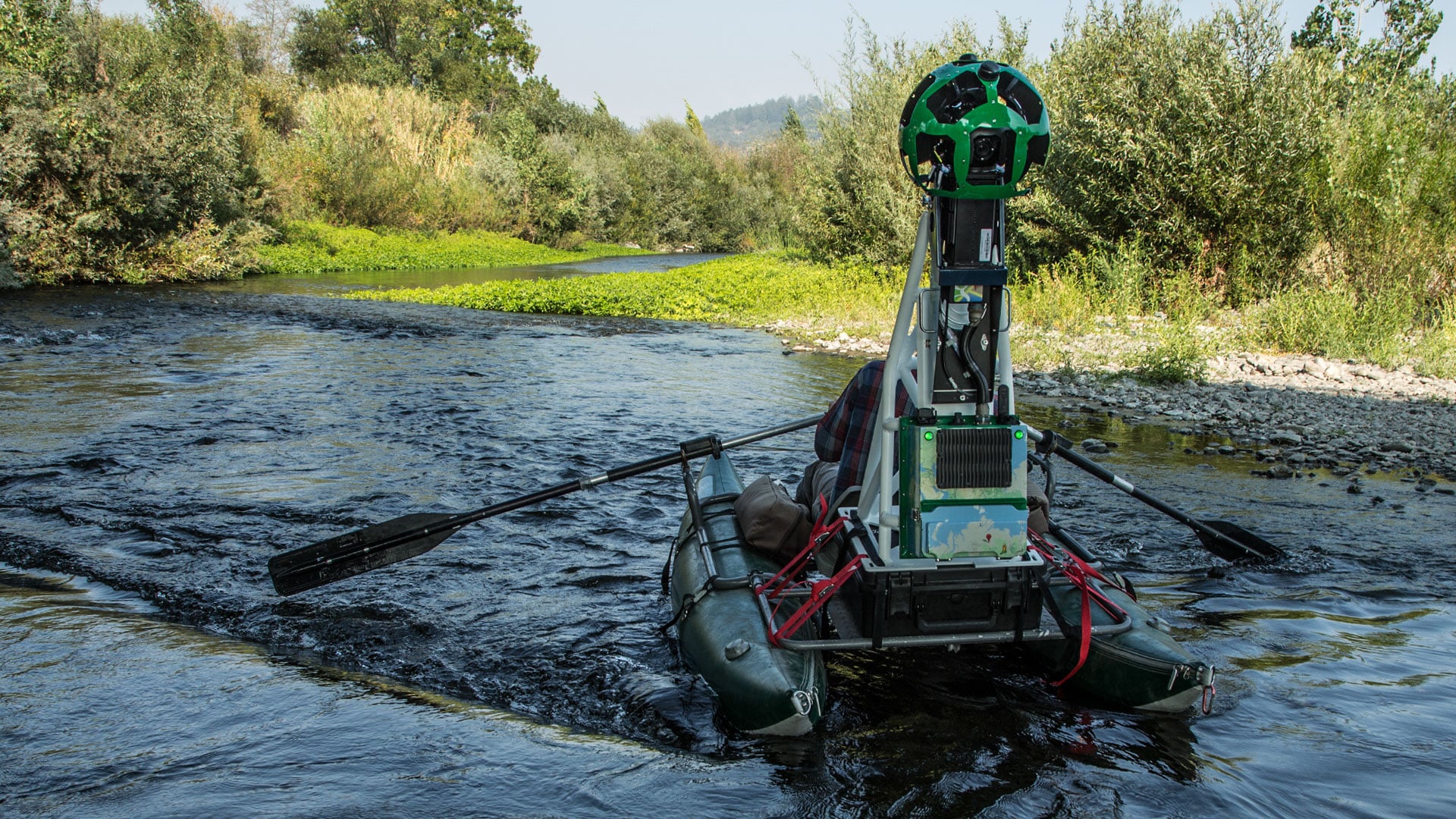
Hiking with the Trekker, The Nature Conservancy captured imagery of their Independence Lake Preserve. Independence Lake is a rare example of a healthy lake that has sustained native fish for millennia. In fact, the preserve is one of the only places in the world that supports a self-sustaining lake population of Lahontan cutthroat trout. The forest around the lake cleans the air, filters the water, stabilizes soil, and provides a home for wildlife. An estimated 5,000 people visit Independent Lake Preserve each year to enjoy fishing, hiking, kayaking, and picnicking in the crisp, clean air.
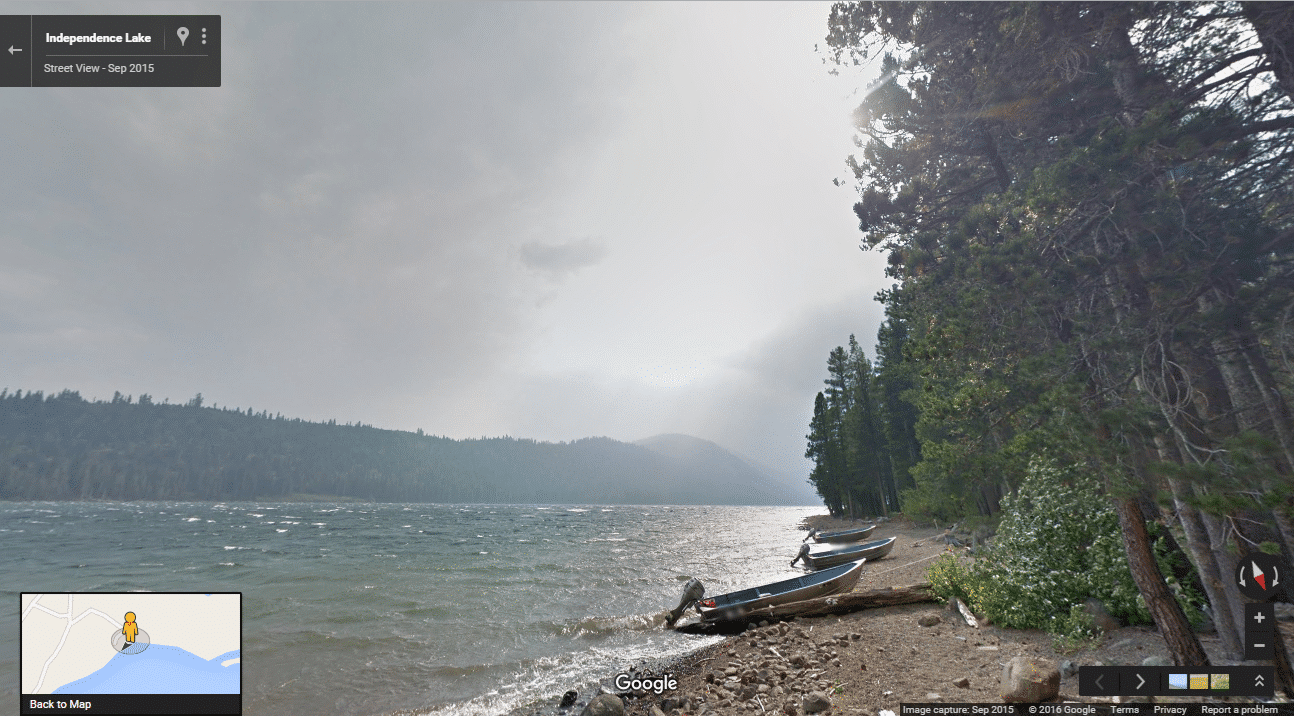
“Through the Trekker Loan Program, we’re fortunate to be able to provide nonprofits with the opportunity of collecting imagery of unique places that tell a story about who they are as an organization or share a powerful message,” said Karin Tuxen-Bettman, Google Earth Outreach Program Manager. “With California in its worst drought in 1,200 years, understanding and managing our rivers, lakes and watersheds is critical.”
World Water Day has been observed on March 22 since 1993 when the United Nations General Assembly declared it as “World Day for Water.”
The Freshwater Trust is a freshwater conservation non-profit that has more than 30 years of experience restoring rivers in the Pacific Northwest. The nonprofit collected imagery of streamside vegetation and river conditions and will use it to help identify and prioritize sites for restoration opportunities along the Russian River.
The majority of the streams in the basin are listed as impaired under the Clean Water Act.
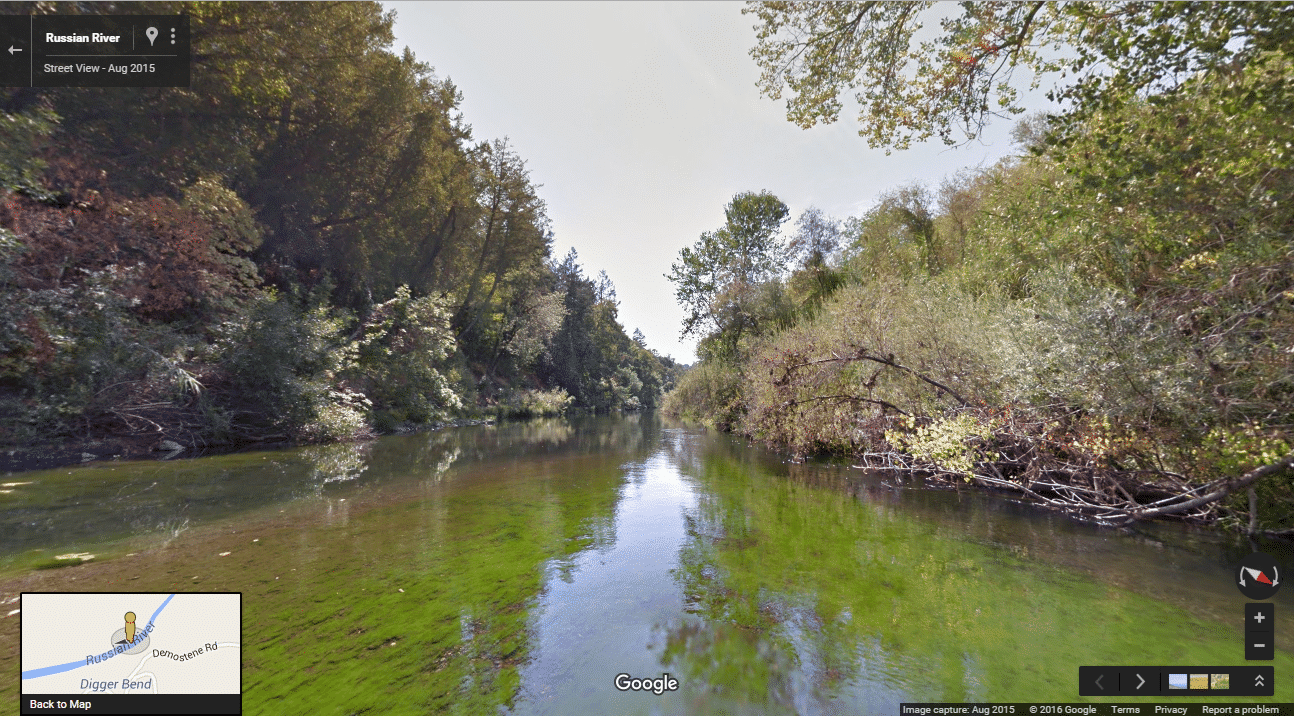
Low flows, high water temperatures and excess nutrients often cause algal blooms and threaten the river’s populations of threatened Chinook and steelhead and endangered coho salmon. Additionally, following large rain events, the Russian River gains significant energy, carving into the outside bends of its course and eroding them. An ode to a 1950s experiment to reduce erosion, junk cars are found on the banks and bottoms of the Russian and rivers nationwide.
The nonprofit estimates that 30% of the Russian River is a significant priority for revegetation to lower the water temperatures to a more hospitable level for fish, filter nutrients and runoff, and stabilize the banks.
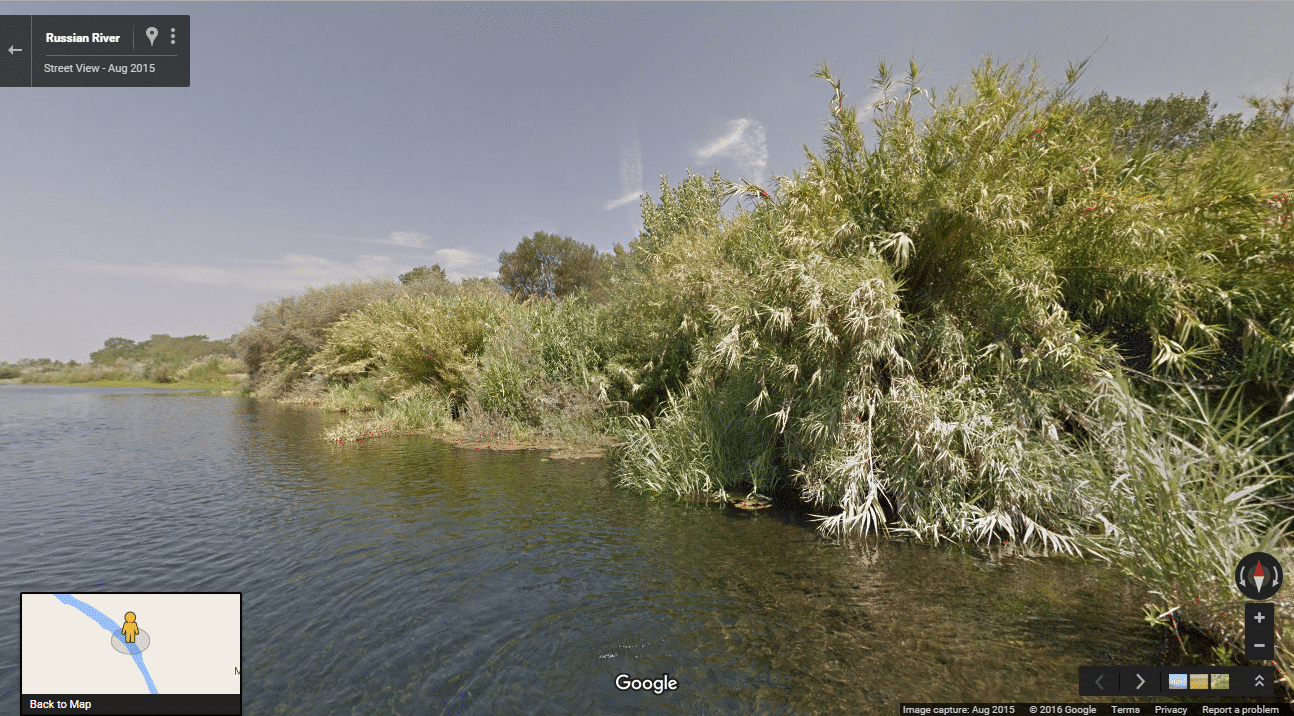
“The Freshwater Trust is experienced in assessing watersheds to help local groups quantify and prioritize conservation efforts to have the greatest environmental benefit for freshwater ecosystems,” said Mike Jolliffe, applied research scientist with The Freshwater Trust. “Working with Google Maps to capture ground-level imagery for long stretches of river was especially exciting because this type of data provides such a large imagery resource and an insight into freshwater ecosystems at an entirely new scale that could be used to make better restoration decisions.”
See The Freshwater Trust’s Street View Imagery
The Nature Conservancy’s Independence Lake Preserve is nestled high in California’s Sierra Nevada Mountains. Water from Independence Lake flows east out of the Sierra Nevada and eventually into the Truckee River, making the lake a vital part of the drinking water supply for two of Nevada’s largest communities, Reno and Sparks. However, wildfire, drought, and climate change put Sierra watersheds at risk.
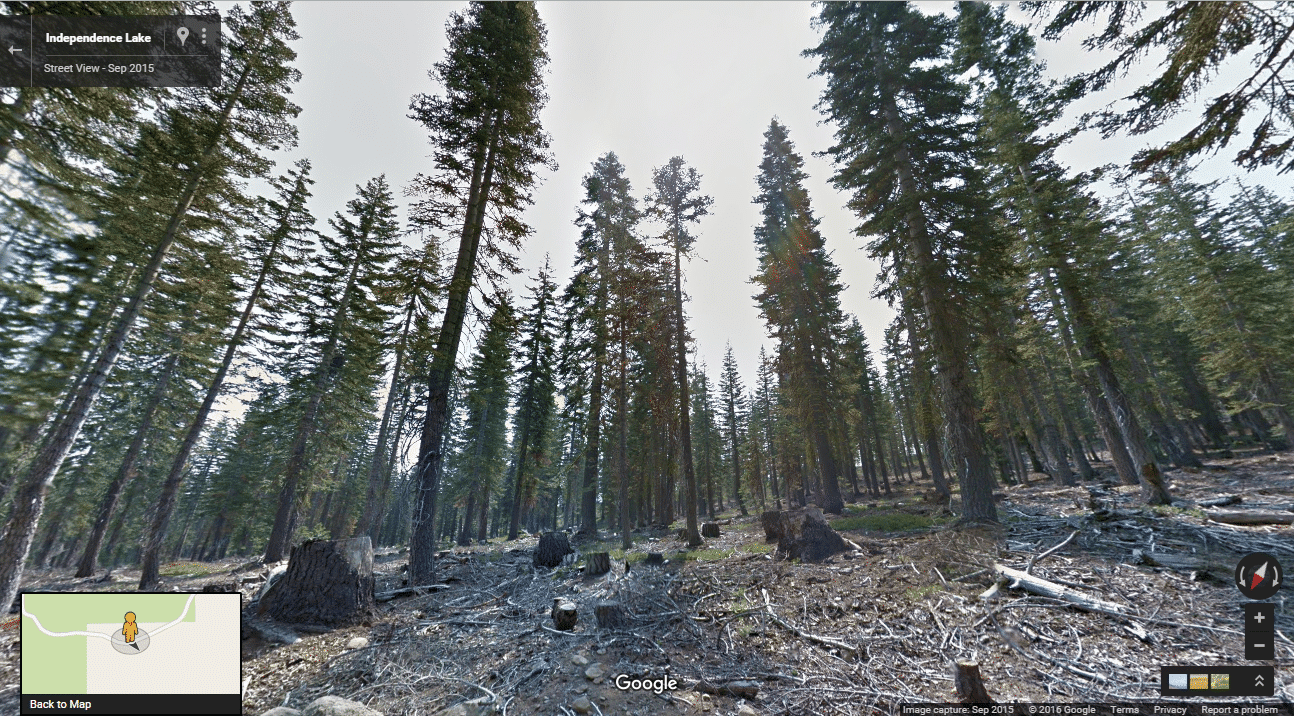
The Conservancy, which owns and manages the Preserve, collected the imagery to have some baseline images to compare how the forest is growing and re-growing over time. They can also compare different tree stands to each other, based on the different forest management treatments.
See The Nature Conservancy’s Street View Imagery
“Google Street View is helping The Nature Conservancy use technology to monitor and prepare for climate change,” said Klausmeyer. “Our mission is to protect important places for people and nature, and we need to explore all the innovative solutions we can to achieve that mission.”
According to Google Maps, Street View Imagery is available in 75 countries around the world. Approximately 50 nonprofits have borrowed the gear to do similar expeditions.
“Seeing how groups like The Freshwater Trust and The Nature Conservancy are using technology like this to protect our water ecosystems and in turn, our water supply, sheds new light on other ways we can make a difference during this critical period,” said Tuxen-Bettman. “Both stories illustrate the importance of healthy freshwater ecosystems and the need for riparian and watershed management to maintain a secure and healthy drinking water supply now and tomorrow.”
About The Freshwater Trust
Founded in 1983, The Freshwater Trust accelerates the pace and scale of freshwater restoration through the use of science, technology and incentive-based solutions to restore rivers on a timeline that matters. The nonprofit uses quantified conservation to fix more rivers faster, and in 2013 received the U.S. Water Prize for its innovation. For more information, please visit www.thefreshwatertrust.org.
About The Nature Conservancy
The Nature Conservancy is a leading conservation organization working around the world to conserve the lands and waters on which all life depends. The Conservancy and its more than 1 million members have protected nearly 120 million acres worldwide. Visit The Nature Conservancy on the Web at www.nature.org
#California #Clean Water Act #cutthroat trout #drought #groundwater #Independence Lake #landscape imagery #nonprofits #recreational activities #river restoration #Russian River #The Nature Conservancy #Trekker #Watershed #wildlife #World Water Day
